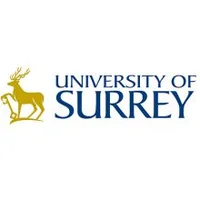
Have you ever been mesmerised by creative yet educating ads which are not boring, but attractive, humorous or even touching? Ever been intrigued to create one by yourself?
So, maybe Mass Communication and Media course is something you could pursue. Especially in the current world, what is not digitalised? The entertainment industry, intellectual property and many more require the role of a media specialist.
Mass communication is the process of exchanging information through mass media to large segments of a wide range of people.
Mass communication and media is a fast-paced field with a wide range of selection ranging from journalism, advertising, media publishing and broadcasting.
For example, reading the newspaper daily, watching the news channel on TV or youtube videos are some forms of mass communication.
If you’re creative in nature and passionate for media and communication-related roles, Mass Communication and Media courses allow you to explore your inner creativity and interact with the world around you.
What is Mass Communications & Media all about?
Mass Communication and Media has been rising upward leading to lots of new opportunities. As media has become an exciting and fast-paced field, it gives you an insight into many forms of media and how it works.
Mass Communication and Media is about how the media works and how it affects the mass public socially and culturally. This course offers a wide selection of career opportunities in areas like advertising, broadcasting, journalism, public relations and marketing.
An optimum career to play with that involves 20-30 roles to play, namely from public relations to journalism and even sales.
What are the specialisations in Mass Communications & Media?
The Mass Communications & Media Studies as a whole has many major fields, which include but are not limited to:
1. Advertising
Method of promoting or selling products, services or ideas. Printed ads in the newspaper, magazines, poster ad, TV and radio commercials.
2. Broadcasting
Distribution of audio or video content to a broad audience at the same time via an electronic mass communication medium.
3. Journalism
Informing the general public about news, events or activities in the form of newspapers, TV or websites.
4. Public Relations
Relates to methods of communication between an organisation or person to a wider community.
5. Marketing
Marketing is all about communicating the value of a product or services to a community, mainly to maximise sales volume and profitability.
What kind of subjects are taught in Mass Communications & Media course?
The subjects that you come across will vary, depending on the specialisation that you take in the major.
A glimpse of subjects that are offered in Media and Communications BSc (Hons) in Loughborough University:
|
Core Modules |
|
|
Elective Modules |
|
What are the skills and characteristics needed for Mass Communications & Media course?
To be able to succeed in the field of Mass Communications & Media, you will need various types of skills to equip yourself.

Among all the important skills that are needed in any field, you will find these skills useful for a career in the social science sector:
1. Communication Skills
Language is one of the most fundamental tools of a legal professional. It is no doubt that communication skills, whether it’s oral or written, are equally important to convey information in clear, concise and logical terms.
Without oral and written communication skills, you’ll struggle to carry out duties of a solicitor effectively in the court and when you are drafting letters and legal documents.
2. Questioning
Questioning skills are critical to your success as a legal professional and the ability to ask questions effectively can greatly impact your career in this field.
From simply interacting daily with other colleagues and clients to questioning witnesses on the stand, you will need some important questioning techniques like funnel questioning, asking probing questions, asking leading questions and asking rhetorical questions.
3. Analysing, Researching and Evaluating Skills
Being in the legal sector, reading large amounts of information and facts and figures is a part of the routine you cannot skip. Among the massive amount of information, the key is being able to identify what is relevant and what is not so that important points will not be missed out.
When doing the background study of a case, drafting legal documents and advising clients on complicated issues, researching and evaluating skills are important too.
4. Critical Thinking
Critical thinking is important in all fields of study, including Mass Communications & Media. No matter which field you are in, critical thinking skills are important to help you analyze situations and make informed decisions.
In the field of Mass Communications & Media, you will need to be able to understand problems, think critically and devise solutions to problems related to your clients to help them solve their problems.
What are the best Universities for Mass Communications & Media course in UK?
The table below showcases the top universities in the UK for their Mass Communications & Media course, according to QS Universities:
|
University |
Programs Offered |
|
|
|
|
|
|
|
|
|
|
|
|
|
|
|
|
|
Media and Communications MA |
|
|
Marketing Communications BA (Hons) |
Also read:
- Rankings of universities in UK
- Want To Study In UK With A Limited Budget? Check Out Our Compilation Of The Most Economical Universities There
- The Cheat Sheet to Top UK Universities
What is the career outlook for Mass Communications & Media graduates from the UK like?
As mentioned previously, the career opportunity for this major is great and can always be found across industries and sectors.

Here are some of the career options that you can consider as a graduate:
- News Writer
- Journalist
- TV Anchor
- News producer
- Copywriter
- Educator
- Production Executive
- Foreign service officer
- Broadcaster
The wage that you will make while working in this field in the UK is comparatively high, but it is not the same across, depending on the occupation.
The below table showcases the different types of jobs that a graduate from Mass Communications & Media in the UK and the expected salary according to PayScale:
|
Occupation |
Estimated Salary (Per Year) |
|
News Writer |
£ 40,000 - 70,000 |
|
TV Anchor |
£ 28,000 - 40,000 |
|
Journalist |
£ 22,000 - 90,000 |
|
Production Executive |
£ 36,000 - 45,000 |
|
Broadcaster |
£ 25,000 - 85,000 |
How long is the duration of studies for Mass Communications & Media course in the UK?
The duration of studies will depend on the level of studies that is taken.
|
Bachelor’s Degree |
3-4 years |
|
Master’s Degree |
1-2 years |
What are the entry requirements for Mass Communications & Media in the UK?
Each university has different entry requirements and the list below does not generalise the entry requirement of universities in the UK as a whole.
|
Undergraduate |
|
|
STPM |
A pass in SPM / O-Level or equivalent with 5 credits including English and Mathematics with a pass in Bahasa Melayu and History in SPM |
|
English |
IELTS (minimum 7.0 overall), TOEFL (minimum 600 or 100) |
|
A-Level |
Good passes in at least 3 GCE A-Level subjects and General Paper |
|
International Baccalaureate Diploma |
Good results A good score for SAT Critical Reading / Evidence-Based Reading and Writing |
|
Additional pre-requisite |
Interview or written test (for some universities) |
|
Postgraduate |
|
|
Bachelor’s Degree |
Good results |
|
Working experience |
Min. 6 months (vary on the universities) |
|
English |
IELTS (minimum 7.0 overall), TOEFL (minimum 650 or 100) |
|
Additional prerequisites |
Pass interview (for some universities) |
|
Supporting documents |
Recommendation letter, updated CV |
How much is the tuition fee to study Mass Communications & Media courses in the UK?
There is a different variant to tuition fees in the UK, depending on the course and university that is chosen.
The estimated tuition fee per year for Mass Communications & Media course in the top universities in the UK can be seen here:
|
Programme |
Estimated Fees (per year) |
|
Bachelor’s Degree |
£ 21,000 - 30,000 |
|
Master’s Degree |
£ 18,000 - 25,000 |
The fee above only covers the tuition fee and not other additional fees nor living expenses.
Living expenses of students in the UK depend on the location of the university and the city that you live in.
Also read: Top things international students value when studying in the UK
 +60142521561
+60142521561











